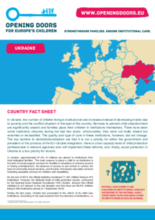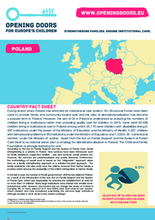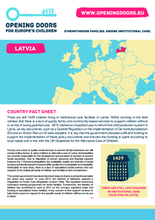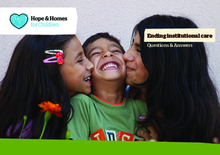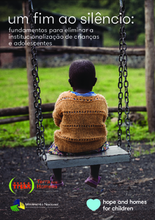Displaying 311 - 320 of 662
Due to poverty and military conflicts in the east, the number of children in institutional care in Ukraine has increased.
This Country Fact Sheet discusses Poland’s recent reforms to its institutional care system.
This Country Fact Sheet from Latvia reports that there are currently 1,429 children in Latvia living in institutional care facilities.
This publication includes common questions and answers on the implications of institutional care and why it should be ended.
This fact sheet highlights Bosnia and Herzegovina’s latest developments in Deinstitutionalization.
Décadas de pesquisas comprovam que o crescimento em instituições de acolhida gera consequências psicológicas, emocionais e físicas, incluindo transtornos de apego, atrasos cognitivos e no desenvolvimento, e uma falta de habilidades sociais e de competências para a vida, trazendo diversas desvantagens na idade adulta.
This brief from UNICEF Cambodia describes UNICEF's plans and programs regarding child protection.
Opening Doors for Children report in this Country Fact Sheet that despite the country’s efforts, Lithuania’s institutional rates remain very high.
This paper aims to understand the functioning of institution in protecting the rights of children who are in need of care and protection and highlight measures for revamping the institutional care and revolutionizing family care.
This Estonia Country Fact Sheet highlights the transformations made in deinstitutionalization in Estonia since 2004. By the end of 2015, there were 1,068 children in 38 residential care settings in Estonia.

